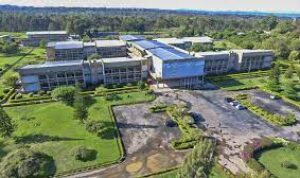Teofilo Kisanji University, also known as TEKU, is a private university located in Mbeya, Tanzania.
The university is affiliated with the Moravian Church, and it often integrates Christian values and principles into its educational programmes and activities.
Below is a list of health courses offered at Teofilo Kisanji University and their fees.
A) Certificate & Diploma In Clinical Medicine (Co):
A Certificate and Diploma in Clinical Medicine (CO) typically refer to educational programs in the field of healthcare and medicine.
These programs are designed to train individuals to become competent clinical medical practitioners who can work in various healthcare settings, including hospitals, clinics, and other healthcare facilities.
Here’s a general overview of what these programs entail:
1) Certificate In Clinical Medicine (Co).
A certificate program usually lasts for about two years.
These programs provide foundational knowledge and skills in clinical medicine. Students learn about anatomy, physiology, pathology, pharmacology, and basic medical procedures.
They also gain clinical experience through practical training.
The certificate program prepares students for entry-level positions in healthcare settings as clinical assistants.
2) Diploma In Clinical Medicine (Co).
A diploma program typically lasts for about three years, building upon the foundation provided in the certificate program.
The diploma program aims to provide students with a higher level of knowledge and skills, preparing them for more advanced roles in healthcare, including clinical officers who can diagnose, treat, and manage various medical conditions.
A Certificate and Diploma in Clinical Medicine (CO) fee at TEKU: 1,500,000 TZS.
B) Certificate & Diploma In Pharmaceutical Science (Pharmacy):
Certificate and Diploma programs in Pharmaceutical Science, often related to Pharmacy, provide education and training in the field of pharmaceuticals, preparing individuals for careers in the pharmaceutical industry or as pharmacy technicians.
Here’s an overview of these programs:
1) Certificate In Pharmaceutical Science (Pharmacy).
Certificate programs typically last for about 2 years.
These programs cover fundamental concepts related to pharmaceuticals, including, pharmacology, drug formulation and manufacturing, pharmacokinetics, and pharmacy law and ethics.
Students may also gain practical experience in compounding medications and working in a pharmacy setting.
The certificate program provides basic knowledge and skills necessary to work as a pharmacy technician or assistant in a retail or hospital pharmacy.
Graduates may assist pharmacists in dispensing medications and managing pharmacy operations.
2) Diploma In Pharmaceutical Science (Pharmacy).
Diploma programs typically last for about 3 years, and building upon the foundation laid in the certificate program.
Diploma programs offer more in-depth coursework and practical training. Students delve deeper into pharmaceutical sciences, including advanced topics in pharmacology, pharmacotherapy, drug dosage forms, quality control, and pharmaceutical regulations.
They may also complete practical experiences in pharmacies or pharmaceutical companies such as medical store department (MSD).
A Certificate & Diploma in Pharmaceutical Science (Pharmacy) fee at TEKU: 1,500,000 TZS.
C) Certificate & Diploma In Nursing And Midwifery (Nursing):
Certificate and Diploma programs in Nursing and Midwifery are educational pathways that prepare individuals for careers in nursing and midwifery.
These programs are essential for those who want to work in healthcare settings as registered nurses (RNs) or certified midwives.
Here’s an overview of these programs:
1) Certificate In Nursing And Midwifery (Nursing).
Certificate programs in nursing and midwifery typically last for about 2 years.
These programs provide foundational knowledge and skills in nursing and midwifery. Students learn about anatomy, physiology, nursing fundamentals, maternal and child health, and basic clinical skills.
They also gain practical experience through clinical rotations in hospitals and healthcare facilities.
The certificate program prepares students for entry-level positions as nursing assistants or enrolled nurses. They can assist registered nurses and midwives in providing patient care and support.
2) Diploma In Nursing And Midwifery (Nursing).
Diploma programs in nursing and midwifery typically last for about 3 years and build upon the content covered in the certificate program.
Diploma programs offer more comprehensive coursework and clinical training. Students study advanced topics in nursing and midwifery, including medical-surgical nursing, pediatric nursing, obstetric nursing, gynecology, and advanced clinical skills. They also gain more extensive clinical experience.
The diploma program aims to prepare students for a broader range of nursing and midwifery responsibilities.
Graduates can work as registered nurses and certified midwives, providing comprehensive care to patients across the lifespan, including prenatal, labor and delivery, and postpartum care.
A Certificate & Diploma in Nursing and Midwifery (Nursing) fee at TEKU: 1,500,000 TZS.
Also read: Courses Offered At Teofilo Kisanji University (TEKU).
Conclusion:
Please keep in mind that Teofilo Kisanji University may have expanded its health course offerings or made changes to existing health programmes since my last update.
Therefore, it’s essential to check their official website teku.ac.tz/ or contact the university directly for the most current information regarding health courses, admissions, and any specific requirements for each health programme.



